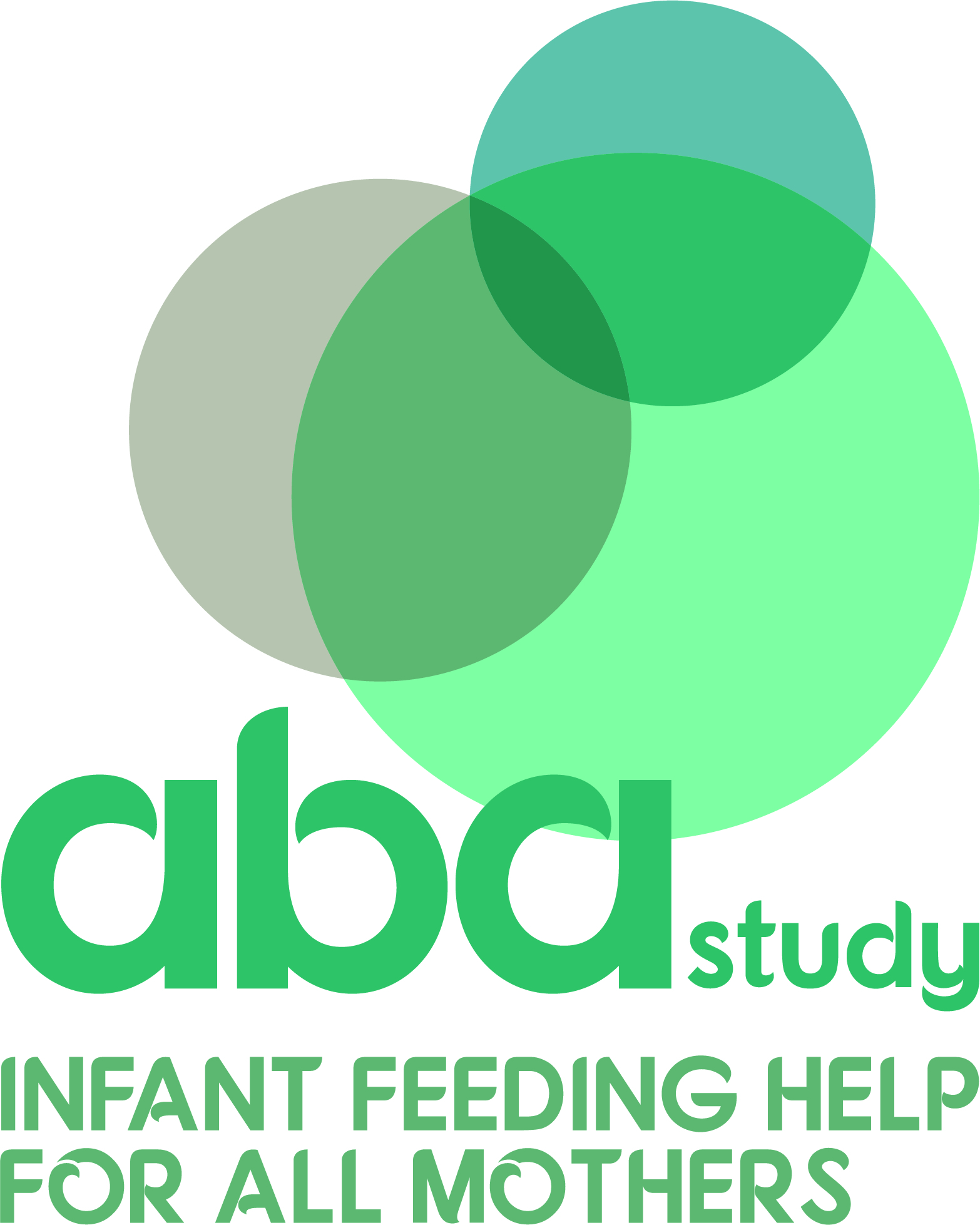ABA (Assets-based feeding help Before and After birth) study for improving breastfeeding initiation and continuation.
Summary
Breastfeeding can improve the health of mothers and infants, but the UK has one of the lowest rates in Europe. Women value support from other mothers who have breastfed (peer support) and local areas have set up services to provide this. This feasibility trial aims to test the approach, recruitment, delivery, retention and acceptability of a feeding helper intervention (ABA) using existing peer supporters.
What is the project about?
Women in their first pregnancy are invited to take part at an antenatal appointment and randomised to receive additional support from a ‘feeding helper’ or to usual support for feeding available locally. Existing breastfeeding peer supporters have been trained to become ‘feeding helpers’. Using a proactive, assets-based, woman-centred, non-judgemental approach they will help mothers to identify the feeding experiences of people they know, provide information about social, postnatal and breastfeeding support groups and offer a ‘listening ear’ when mothers have had their baby.
How is it funded?
The study is being funded by the NIHR Public Health programme
Where is it being done?
It is taking place in two areas (South Gloucestershire and Birmingham) with low breastfeeding rates. The research team are experts in breastfeeding research with considerable experience of designing, delivering and evaluating complex interventions using RCTs, qualitative and mixed methods research.
It is led by Prof Kate Jolly in Birmingham and Jenny Ingram in Bristol with co-applicants in Cardiff, Stirling and Central Lancashire.
Recruitment and study design
We are including 100 first time mothers. The intervention ABA group have an antenatal meeting with the feeding helper and daily texts or calls postnatally for 2 weeks, followed by less frequent texts until their babies are 5 months old. At 3 days, 8 weeks and 6 months after birth, we are collecting information about how all the women are feeding their babies. We are interviewing women about their experiences of the feeding help; and feeding helpers and health care professionals about how the feeding helpers fit in with the health service. The costs of providing the new service are also being measured.
Next steps
We will produce recommendations about whether a larger RCT of feeding helpers in the UK is possible.
